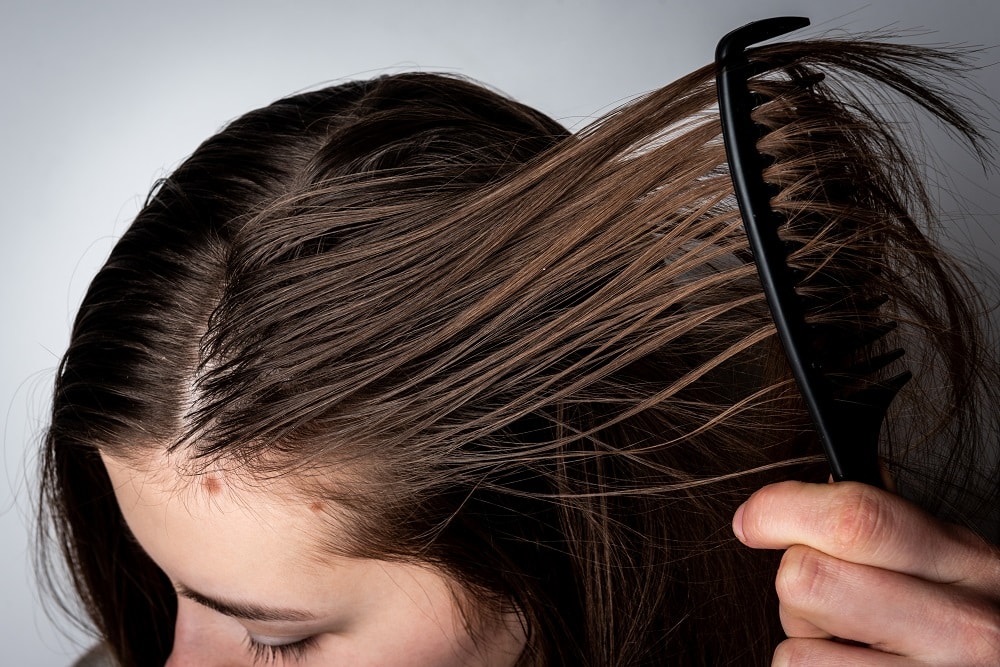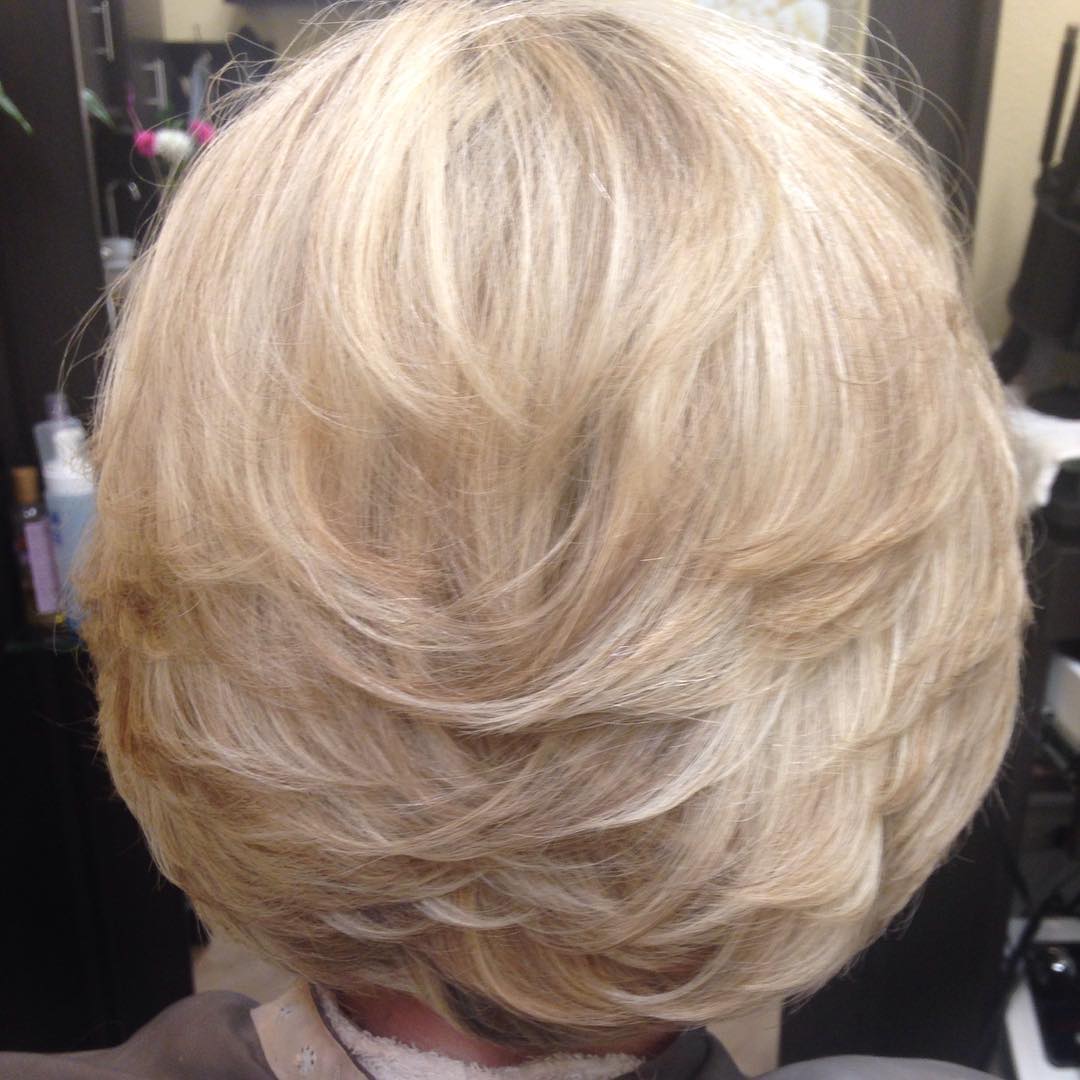Table Of Content

This doesn’t have to take long; in fact, quick, gentle washing will be better for your tools than a more intensive cleanse. For brushes, simply run them under the tap (if they’re wooden) or place them in a sink full of water (if they’re plastic), and use a drop of shampoo to delicately wash the bristles. For straighteners and curling irons, make sure they’re unplugged and cool before using a damp cloth to give the plates a wipe down. If an underlying medical condition causes your oily hair, treating that condition is the best way to combat an oily scalp. For example, if you have a hormonal imbalance from your menstrual cycle or PCOS, some types of birth control may help control oily skin.

Rinse properly
The hormones in dairy products are believed to break down into androgens (hormones) after consumption resulting in an overproduction of sebum. Hormone imbalance also occurs when you are overly stressed or anxious, and before or during that time of the month. When the level of androgens (hormones) increases, which happens when you’re experiencing a hormone imbalance, this puts your body in a slightly stressed state, making the glands in your scalp produce more oil. Your hair follicles surround the root and strand of the hair within. Most of these hair follicles also contain the sebaceous glands, the glands that produce oil.
Washing Hair
This can lead to breakage, dull looking hair, and overall, it will make your scalp dry and flaky. Conditioner is bad news for oily hair but you can avoid that, if only you use it in a particular way. A conditioner facilitates the accumulation of more oil so you will be well advised to use it only on the ends of your hair and wash well after that.
Stripping Products
Few things are more frustrating than investing time to wash and style your hair only to be met with oily or greasy strands the same day. We're here to shed light on the tricky little things that might make your hair greasy so you can extend the time between shampoos without sacrificing your style. Using hot water washes away the natural protective oils from your scalp and hair, leaving it dry.
Dove Care Between Washes Clarifying Dry Shampoo
This can cause your body to try and overcompensate and produce even more oil. Some of these steps may feel counterintuitive and can even make your hair greasier in the beginning. Prolonged stress can increase your body’s stress hormone levels. Cortisol is a stress-related hormone that can drive oil production into overdrive. Because straight hair doesn’t have kinks, waves, or curls to restrict its sebum distribution, the oil slides down the length of each strand and gives it an oily feel and greasy appearance.
Going Natural Without the Big Chop: Transitioning to Curly Hair
If you’re in a pinch, you can use them to absorb oil from your hair quickly. Focus on the root of your hair and your scalp to get rid of some of the oil. Especially after a workout or on a hot day, it’s good to have a few quick fixes on hand to minimize the look of oil in your hair.
So, you could be doing everything else right in your hair care routine, but if your pillowcase is dirty, all those efforts could be in vein. Los Angeles hairstylist Justine Marjan adds that massaging castor oil into the roots of your hair before going to bed every once in a while can also help balance the scalp's oil production. The cause of your greasy scalp plays a huge role in how you should treat it.
Men’s Curly Hair: The Ultimate Guide for Show-stopping Curls
18 Products For Anyone Who Hates Dealing With Oily Hair - BuzzFeed
18 Products For Anyone Who Hates Dealing With Oily Hair.
Posted: Wed, 22 May 2019 07:00:00 GMT [source]
If you have oily hair, you might want to consider adding a lightweight conditioner. Conditioner can make your hair look greasy and cause oils to pile up faster. Condition just the ends of your hair, and be sure to thoroughly rinse.
Dry Scalp & Greasy Hair After Coming Off The Contraception Pill - GLAMOUR UK
Dry Scalp & Greasy Hair After Coming Off The Contraception Pill.
Posted: Sat, 28 Mar 2020 07:00:00 GMT [source]
Are there any specific hair treatments that can exacerbate oil production in the scalp?
This behavior can inadvertently increase the production of sebum, the natural oil produced by your scalp, leading to a greasier appearance. When it comes to styling, it’s not just about achieving the perfect look; it’s about maintaining the delicate balance that keeps your hair vibrant and free from excessive oiliness. The environment and hormones significantly influence sebum production. For instance, high humidity can increase oiliness, while hormonal fluctuations during menstrual cycles or due to conditions like polycystic ovary syndrome (PCOS) can alter sebum levels. Swap styling creams and oils for lighter products that still do the same job. Think liquid mists, lotions and mousses that offer non-sticky hold from root to tip.
He recommends Gentle Oil Radiance Shampoo by Shu Uemura ($59, Shu Uemura) if this describes your hair type. Nizoral shampoo is typically used to treat dandruff, but it can also be an effective treatment for oily hair and scalp. Exfoliating your scalp is likely not part of your haircare routine, but oily scalps can benefit from a good scrub. There are tons to choose from, or you can even make your own with simple pantry ingredients including coconut oil and sugar.
And this sends a signal to your oil-producing glands to produce more oil, so in a matter of hours, your hair will be a greasy ball. Also, the more you wash your hair, the more your scalp over produces oil because you’re stripping the natural oils. And the only way you can break it is by giving your every day washing a break. Ans - There are several reasons why hair can become greasy after just one day, including over-washing, using hot water, using too much hair product, and hormonal changes. Over-washing can strip the hair of its natural oils, causing the scalp to produce more oil to compensate.

Your brush can be full of styling products, oils, and general gunk that can make your locks dirty immediately after washing. But if you’re already washing your hair once a day and you’re still greasy by day’s end, it might be worth playing with how frequently you wash your hair. There’s a reason the beauty aisle has products dedicated to different hair textures.
Of course, there are plenty of natural ingredients that have been known to help oily hair and scalps. Yes, just like your face, your scalp can simply produce more oil than the average person. This can come down to genetics, as some people are just more prone to sebum production. Washing too frequently often is the result of the aforementioned oily roots—but it can also be because you work out every day, live in a warm environment where you sweat more, or just personal preference. If you need more insight into how much you should be shampooing, take a look at our full guide to washing your hair. Your diet can also influence how much oil your scalp produces, and some foods can make it produce more.
Let the shampoo find its way towards the ends of your hair as you wash it gently. Contrary to popular belief where washing is generally considered a solution and overwashing a reason for dry hair, the reverse is also equally true. The downside is that dry shampoos add residue that can make your hair and scalp feel gritty and dirty. It also dries out your hair, so it’s best to only use it every now and then and wash it off completely the next day to avoid irritation and damage. But this can give the oil more of a chance to accumulate on the scalp and the hair itself, he says. This doesn’t necessarily mean you need to wash much more often, as this can dry out your curls, which may already be prone to dehydration.
As a dynamic husband and wife duo behind Curl Centric, our passion for curly hair has fueled a transformative journey. If hot water is the cause behind your oily locks, using warm or cool water to wash will help decrease your scalp’s oil production. Water temperature is another critical factor that can impact the oiliness of your hair. Hot water stimulates the oil-producing sebaceous glands in your scalp, which causes them to produce more oil.

No comments:
Post a Comment